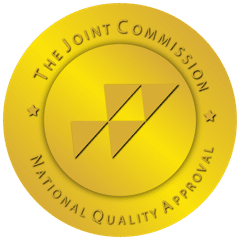Recovering from alcohol addiction is a challenging journey and, for many people, completing an outpatient alcohol rehab program is a critical step toward long-term sobriety. Outpatient programs provide the flexibility needed to continue working, attending school, and maintaining family responsibilities, all while receiving the treatment necessary to overcome addiction. In Anaheim, Lift Off Recovery offers comprehensive outpatient alcohol rehab services designed to support individuals through every stage of recovery.
Successfully completing outpatient alcohol rehab requires commitment, the right strategies, and a supportive environment. In this blog, we will explore the key success strategies for individuals enrolled in outpatient alcohol rehab in Anaheim, along with tips to help you stay focused on your recovery journey.
1. Stay Committed to Your Treatment Plan
Outpatient alcohol rehab offers flexibility, but it also requires self-discipline and commitment to your treatment plan. Unlike inpatient rehab, where individuals reside in the facility, outpatient rehab allows participants to return home at the end of each treatment session. This freedom can be beneficial, but it also means you need to stay accountable to your treatment schedule.
We work closely with clients to develop personalized treatment plans tailored to their needs. These plans may include individual therapy, group counseling, and Cognitive Behavioral Therapy (CBT) to address the emotional and psychological aspects of addiction. To succeed in outpatient rehab, commit to attending every session and fully engaging with your therapy.
2. Build a Strong Support System
Recovery is not a journey you should take alone. Building a strong support system is crucial for success in outpatient alcohol rehab. Having friends, family members, and peers who understand your recovery goals and encourage your sobriety can make a significant difference.
At Lift Off Recovery, we offer family therapy sessions to help rebuild trust and strengthen relationships with loved ones. Additionally, participating in group therapy sessions provides an opportunity to connect with others who are going through similar experiences. Sharing your journey with others in recovery fosters a sense of community and reduces feelings of isolation.
3. Practice Mindfulness and Stress Management
Stress is one of the leading triggers for relapse, and learning how to manage stress effectively is key to staying sober. Mindfulness practices, such as meditation and deep breathing exercises, can help you stay grounded and present during stressful situations. These techniques also reduce anxiety and help you manage cravings for alcohol.
It can be beneficial to integrate holistic therapies into your outpatient program. These practices are designed to promote emotional balance and improve overall well-being, giving you the tools to handle the ups and downs of recovery without turning to alcohol.
4. Set Realistic Goals and Celebrate Milestones
Success in outpatient alcohol rehab is not just about achieving sobriety; it’s about rebuilding your life and creating a future you’re excited about. Setting realistic goals along the way—both personal and recovery-related—can help keep you motivated and focused on your long-term success.
Whether your goal is to stay sober for a specific period, improve your health, or repair relationships, each step you take in your recovery journey matters. Celebrating milestones, no matter how small, can provide a sense of accomplishment and remind you that your hard work is paying off.
We help clients set achievable goals and track their progress. This individualized approach ensures that you’re working toward success on your terms while receiving the support you need.
Learn how our individual therapy can help you set and achieve your recovery goals.
5. Maintain a Structured Routine
One of the challenges of outpatient rehab is maintaining structure and discipline in your daily life. Without the 24/7 supervision of inpatient treatment, it’s essential to establish a routine that supports your recovery. A structured schedule can help reduce stress, keep you focused, and minimize the risk of relapse.
Incorporating activities such as therapy sessions, group meetings, exercise, and hobbies into your daily routine ensures that you stay engaged and avoid idle time, which can often lead to temptation. The team helps clients create a balanced routine that promotes healthy living and keeps them on track.
See how our life skills workshops can help you develop a structured routine in recovery.
6. Focus on Physical Health
Addiction can take a toll on your physical health, making it even more important to focus on nutrition and fitness as part of your recovery journey. Eating a balanced diet, staying hydrated, and engaging in regular physical activity can improve your mood, reduce cravings, and enhance your overall well-being.
We offer activities that support physical health as part of our approach to outpatient alcohol rehab. Our goal is to help clients rebuild their bodies and minds while learning how to live a healthy, substance-free life.
7. Engage in Peer Support Networks
One of the benefits of outpatient alcohol rehab is the opportunity to build long-term connections with others in recovery. Engaging in peer support networks, such as 12-step programs or other recovery groups, provides accountability and emotional support during challenging times. These groups offer a safe space to share your struggles, successes, and experiences with others who truly understand the challenges of staying sober.
We introduce clients to 12-step meetings and other peer support groups as part of our outpatient program. Building a network of supportive peers is an important strategy for maintaining long-term sobriety, even after completing formal treatment.
Discover the benefits of 12-step meetings in supporting long-term recovery.
8. Have a Relapse Prevention Plan in Place
Relapse is a common part of the recovery journey, but it doesn’t define failure. What truly matters is having a proactive plan to manage high-risk situations and prevent a full relapse. We help clients develop personalized relapse prevention plans as part of their outpatient care. These plans are designed to equip you with the tools and strategies necessary to handle challenging situations and stay on track with your recovery.
A relapse prevention plan begins with identifying the triggers that can lead to cravings or temptations, such as certain environments, emotional stress, or even specific people. By recognizing these triggers early on, you can prepare yourself mentally and emotionally to manage them. We then work with you to develop effective coping mechanisms, such as mindfulness practices, stress management techniques, and healthy distractions, that can be used in moments of temptation.
Additionally, having a strong support network is a key component of relapse prevention. Whether it’s family, friends, or support groups, surrounding yourself with people who hold you accountable and provide encouragement can make a significant difference. We emphasize the importance of staying connected to a supportive community, so you don’t feel alone in your recovery. With a well-constructed relapse prevention plan, you can confidently navigate difficult moments and respond to setbacks in a healthy, constructive way.
9. Stay Engaged with Aftercare Services
Completing outpatient alcohol rehab is a major accomplishment, but it’s important to remember that recovery is an ongoing process. The transition from formal treatment to independent living can be challenging, and maintaining long-term sobriety requires continued support. Aftercare services play a vital role in this phase, helping to prevent relapse and reinforce the skills you’ve developed during treatment.
We offer comprehensive aftercare programs to ensure you remain connected to your recovery community even after formal treatment ends. Our aftercare services include regular check-ins, ongoing therapy, and participation in support groups. These resources help keep you grounded in your sobriety by providing continued encouragement, guidance, and accountability.
Staying engaged with aftercare services is one of the most effective ways to safeguard your sobriety. Regular therapy sessions allow you to address any lingering emotional challenges or new issues that may arise as you re-enter daily life. Support groups offer a sense of camaraderie and shared experience, giving you a space to connect with others who understand the ups and downs of the recovery journey.
We understand that recovery is not a one-size-fits-all process, which is why our aftercare programs are tailored to meet the specific needs of each client. Whether it’s through therapy, group support, or additional resources, our aftercare services ensure that you have the tools and support necessary to maintain a healthy, sober life long after treatment ends. Staying engaged with aftercare helps solidify your recovery, providing a strong foundation for your future success.
Find out how our aftercare services support your long-term recovery.
10. Keep a Positive Mindset
Recovery is a journey filled with challenges, but keeping a positive mindset is key to overcoming obstacles and staying committed to your sobriety. Instead of focusing on setbacks or difficulties, remind yourself of the progress you’ve made and the strength it takes to pursue recovery. Celebrate your wins, no matter how small, and practice gratitude for the support and resources you have on your journey.
We encourage clients to focus on positive thinking and personal growth. By cultivating a mindset of resilience and optimism, you’ll be better equipped to face the challenges of recovery and stay committed to your long-term goals.
Finding the Right Outpatient Alcohol Rehab in Anaheim
Completing outpatient alcohol rehab is a significant milestone in your recovery journey, and with the right strategies, you can build a foundation for long-term success. We’re here to provide the support, resources, and guidance you need to stay committed to your sobriety. From personalized treatment plans and family therapy to relapse prevention and aftercare services, we offer a comprehensive approach to outpatient alcohol rehab.
If you’re ready to take the next step in your recovery, contact Lift Off Recovery today. Our compassionate team is here to help you succeed in outpatient rehab and achieve lasting sobriety.
Contact us today to learn more about our outpatient alcohol rehab programs and how we can support your journey to recovery.






